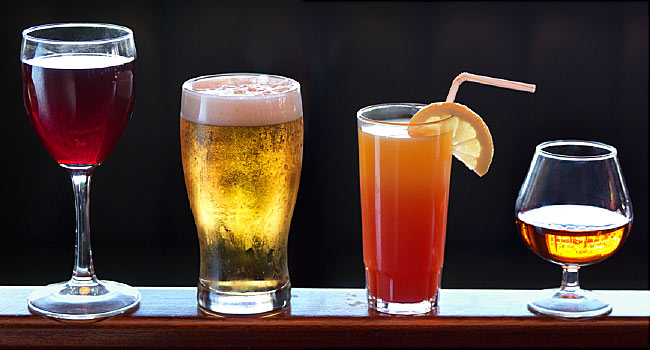Let us begin this article by stressing that we do not underestimate the severity of alcoholism and its consequences. The fact that we will talk about games here, and assume a rather humorous tone at times, it doesn’t mean that it is a joking matter. As Eric Berne (1964) notices, alcoholism (similar to drug addiction) may be portrayed as a lifelong pattern of maladaptive social transactions. A life game, in his terminology. And, as psychological practice shows, this pattern could be broken off if an honest and conscious attitude is assumed. This may mean that an alcoholic will have to deny himself the joy of calling his game ‘an illness’ and forego the role of a helpless victim of such disease.
Transactional Analysis of Alcoholism
But, let’s embark on analyzing alcoholism as a life game by explaining some basic terms of transactional analysis (a psychological theory and a school of thought in psychotherapy) first. Transactional analysis focuses on hidden transactions among individuals, on almost predictable actions most people (if not all of us) are inclined to. These sorts of transactions are called games – behavioral patterns in which different roles are played, and the outcomes are always exciting and dramatic, yet in accordance with the game’s rules.
This means that it is not the person’s authentic Self that is involved in a game. And it is precisely here where the potential for an alcoholic’s healing lies.
The possible biological and physiological causes or contributors to alcoholism are not to be taken nonchalantly. However, this article will not focus on these factors. What we want to bring to light is the other possible perspective on alcoholism; the one that may empower the alcoholic to take the matter into his own hands and abandon the powerlessness in front of liquor.
The Roles in the “Alcoholic” Game
As we already mentioned, alcoholism may be viewed as a life game, a game that could consume a person’s focus and energy entirely, throughout his or her whole life. In addition, the person’s social surrounding also gets drawn into the game (or steps in willingly). Let’s see what the lead roles in this game are.
The central role is, of course, the Alcoholic, followed by the main supporting role – the Persecutor. The Persecutor is usually played by a person of the opposite sex, and most often by the wife of the Alcoholic. Her assignment is to judge and criticize the Alcoholic and his drinking habit. She also needs to know all the consequences of the Alcoholic’s behavior by heart, and list them if the occasion arises. The game also demands that there is a Rescuer, commonly played by a person of the same sex. The Rescuer should have the interest in both the Alcoholic himself, and the variety of consequences of his drinking. This is usually the Alcoholic’s doctor, or even his psychotherapist. As described by Berne (1964), a typical situation is the one when the doctor and the patient congratulate each other on keeping the Alcoholic sober for six months; the next morning, the Alcoholic wakes up in a gutter. Then there is the Patsy, frequently played by the Alcoholic’s mother; it is a person who sympathizes with him, provides him with either money (always needed for yet another project that will take him away from drinking) or alcohol (“just one drink, where’s the harm”), and often blames the Persecutor for not having enough understanding for the Alcoholic’s ordeal. Finally, the Connection is a professional (who knows when to stop playing, unlike previously described players) who understands the language of alcoholics and supplies them with liquor – a bartender, for example.
There are many variations within these general rules of play. For example, the Alcoholic’s wife may play Patsy, Persecutor and Rescuer. Or, in the group psychotherapy, the Alcoholic may try to lure the group into condemning his actions. Alcoholics Anonymous attempt to transform Alcoholics into Rescuers. Whatever the alternatives may be, the game remains the same, and its underlying thesis is – “I was so bad; try and stop me”.
The Healing Perspective
Transactional analysis doesn’t deal with alcoholism – it only recognizes the life game called “Alcoholic”. We believe there is a great healing perspective in this kind of approach. Modern Western society has a tendency of over-pathologization. This, however, can be highly counterproductive for a person who is labeled as alcoholic. Declaring alcoholism an illness leads an “alcoholic” into a game of “What could you expect of an ill person?”. Not much, right?
Nevertheless, we believe alcohol addicts have much more strength and an enormous potential to cease the inadequate and harmful interactions of such life game, and choose healthy relationships and prosperous life path instead.
For assistance with alcohol addiction, or to learn more about DARA Thailand, head to https://www.dararehab.com/or contact a DARA therapist today, 24/7, for a free, confidential assessment via the following numbers:
Direct to Thailand +66-87-140-7788
Toll-free from United States 1-888-774-8459
Toll-free from United Kingdom 0333-122-9728
Toll-free from Australia 1-800-990-523
Latest posts by Darren Lockie (see all)
- Cocaine burnout - February 25, 2020
- What is pathological lying? - February 21, 2020
- Ireland’s growing drug problem - January 20, 2020
+66 8 7140 7788









